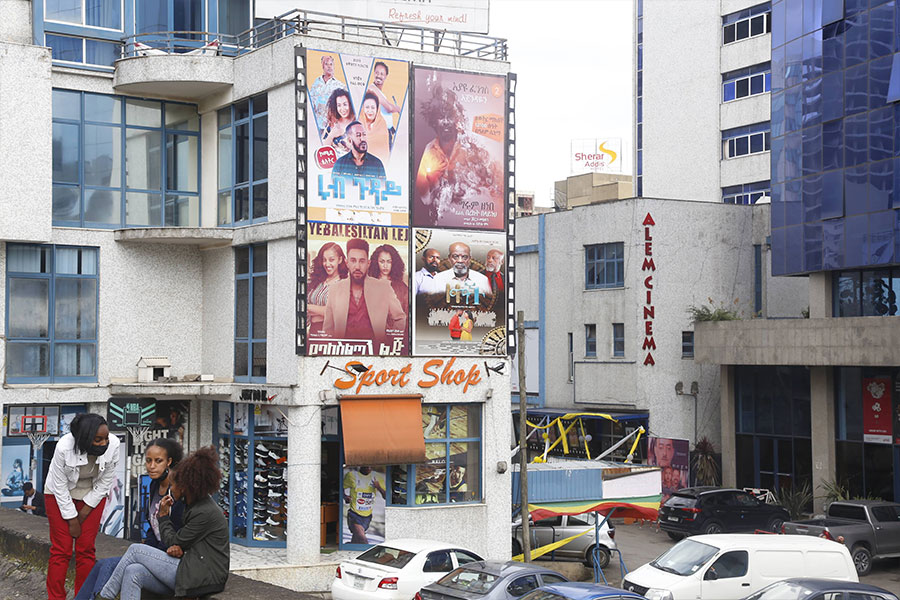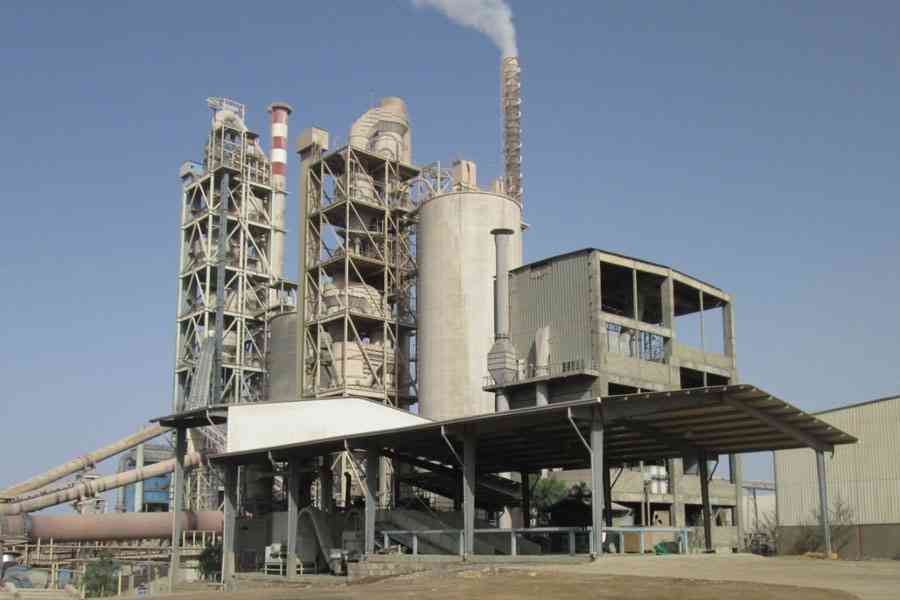
Radar | Sep 24,2022
Regional state officials and cement distribution agents are in an uproar over new rules under consideration for the distribution and marketing of cement.
Legal experts at the Ministry of Trade & Regional Integration (MoTRI) have proposed a draft directive for regional states to set up depots for storing and distributing cement. It looks to compel factories to hand over 30pc of their products to youth associations, which will retail. They need massive space to store the cement they receive from the factories.
There are 14 cement plants with an aggregate production capacity of 8.4 million tonnes annually. Derba Cement, owned by Mohammed Ali Al-Amoudi (Sheik) and his family, has the largest capacity of 2.5 million tonnes, followed by Dangote's 2.3 million tonnes. Annual demand for cement is estimated to have reached 12 million tonnes, forcing federal authorities to intervene in the value chain. The Ministry ended the previous practice of cement distribution through agents a month ago. A letter dispatched to cement factories ordered them to sell their products directly to government organisations and institutional buyers.
The idea for youth groups to involve in supplying inputs to the factories and taking a share of the product for distribution is gaining currency despite pushback from the factories' managers. Regional states have joined them in the uproar.
"This puts additional pressure on the regional administration," said Kelemwork Mihrete, head of the Trade Bureau under the Amhara Regional State, where four cement plants operate.
It is a sentiment shared by those in the Oromia Regional State, where 10 cement plants are located.
“The regional state has not agreed to the proposal,” Hawa Ahmed, head of the Trade Bureau, told Fortune.
The discussion on the draft directive held last week ended without an agreement.
“It will be reviewed considering the feedback we received,” said Kumneger Ewnetu, communications director at the Trade Ministry.
Officials hope tinkering with the supply chain stabilises skyrocketing prices for cement and discourages intermediaries. Agents and wholesalers make up much of the cement business. Wholesalers buy cement from factories through bids, while agents access cement from plants directly. Industry players worry the directive will cause drastic changes in the roles agents have been playing in the construction industry. In Addis Abeba, 600,000 people are engaged in the construction industry and, by extension, the cement business.
Biniam Kidir has been an agent for Dangote Cement for the past three years. The Nigeria-based company joined the industry six years ago with an investment of 600 million dollars.
“Business has been declining this year due to supply shortages,” said Biniam.
Putting agents out of the cement supply chain will complicate supply interruptions further, warns an agent who wants to remain anonymous.
“We've seen what will happen when only a few distributors are allowed to operate,” said the agent.
Two years ago, the former Ministry of Trade & Industry selected five distributors – including Guna Trading House, Ambasel Trading House, Biftu Adugna Business, and the Ethiopian Industrial Input Development Enterprise – as exclusive wholesalers for Portland Pozzolana Cement (PPC) products, one of the two types of cement produced. The decision came a few weeks after the suspension of 12 cement wholesalers. However, more problems followed than they solved. Since 2020, the retail prices for a quintal of cement have jumped by a third to around 800 Br.
Late last week, vendors at Megenagna, a hub for cement retail, sold a quintal for 1,200 Br. This is nearly triple the factory-gate price.
It was fuel to the fire for contractors, who have been battered by the skyrocketing prices for building materials seen over the past two years. Industry insiders blamed intermediaries, complex supply chains, and alleged hoarding practices.
“The directive will end the involvement of intermediaries,” Gezahegn Dechasa, general manager of Mugher Cement.
Founded in 1984, the state-owned Mugher Cement can produce one million tonnes. It uses 80pc of its capacity, much higher than the industry average of 62pc. Mugher Cement depends on 49 wholesalers and has no relationships with agents. Half of the factory’s cement goes to mega public projects such as the GERD.
Sewale Abate (PhD), an assistant professor of finance and investment at Addis Abeba University, sees the move to cut off agents from the supply chain as shortsighted. However, he recognises that some agents may deserve to relinquish their place in the business.
“If they're not operating according to the law, the Ministry can take action," he said.
The upsurge in cement prices comes when prices for construction inputs such as reinforcement bars, aluminium, and glasses escalated. It forced the federal government to inject billions of Birr into contractors undertaking public projects covering them from cost escalations. Projects under 41 public universities and construction companies contracted for federal road projects are eligible for the cost escalation adjustment. Close to 800 public projects valued at 100 billion Br are under construction.
The cement industry faces technical and security problems, leading to a decline in production. The Trade Ministry imposed a price cap and lifted the ban on importing cement, issuing Franco Valuta permits and exemptions of import taxes for importers using their own forex sources. However, these measures proved ineffective.
Managers of cement factories have been voicing concerns over the short supply of raw materials, which has been controlled by youth groups organised by the regional states. Two weeks ago, the Ministry of Mines issued a directive legally binding the cement factories to work with input suppliers who control the quarries.
PUBLISHED ON
Jun 25,2022 [ VOL
23 , NO
1156]

Radar | Sep 24,2022

Featured | Sep 10,2021

Fortune News | Jul 02,2022

Fortune News | Jun 29,2024

Radar | Feb 22,2020

Dec 22 , 2024 . By TIZITA SHEWAFERAW
Charged with transforming colossal state-owned enterprises into modern and competitiv...

Aug 18 , 2024 . By AKSAH ITALO
Although predictable Yonas Zerihun's job in the ride-hailing service is not immune to...

Jul 28 , 2024 . By TIZITA SHEWAFERAW
Unhabitual, perhaps too many, Samuel Gebreyohannes, 38, used to occasionally enjoy a couple of beers at breakfast. However, he recently swit...

Jul 13 , 2024 . By AKSAH ITALO
Investors who rely on tractors, trucks, and field vehicles for commuting, transporting commodities, and f...

Oct 18 , 2025
The political establishment, notably the ruling party and its top brass, has become p...

Oct 11 , 2025
Ladislas Farago, a roving Associated Press (AP) correspondent, arrived in Ethiopia in...

Oct 4 , 2025
Eyob Tekalegn (PhD) had been in the Governor's chair for only weeks when, on Septembe...

Sep 27 , 2025
Four years into an experiment with “shock therapy” in education, the national moo...